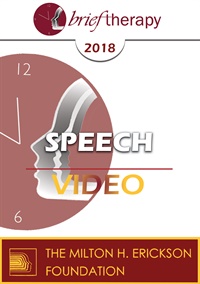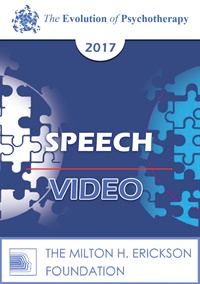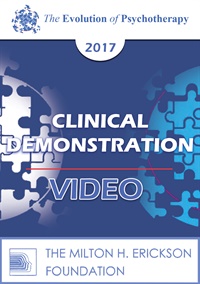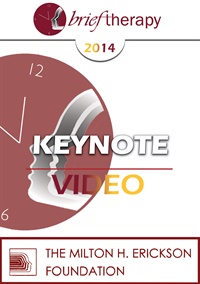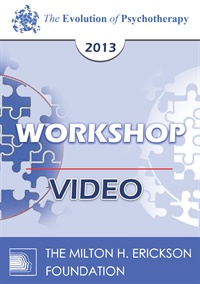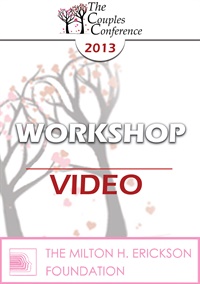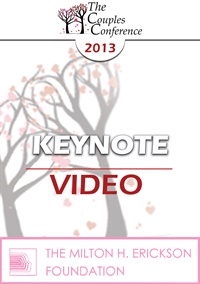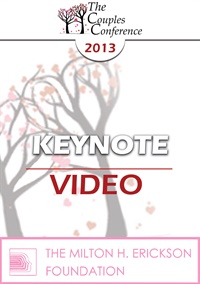
Credit available - Click Here for more information
- Average Rating:
- Not yet rated
- Topic Areas:
- Couples Therapy | Sex and Sexuality | Intimacy | Keynotes
- Categories:
- Couples Conference | Couples Conference 2021 | Online Continuing Education
- Faculty:
- Martha Kauppi, MS MFT
- Course Levels:
- Master Degree or Higher in Health-Related Field
- Duration:
- 1 Hour 3 Minutes
- Format:
- Audio and Video
- Original Program Date:
- Jun 06, 2021
- Short Description:
- Desire resides at the intersection of multiple systems, encompassing purely sexual aspects, numerous physiologic components, and a vast web of emotional, spiritual, and relational issues. In this skills-based presentation, Martha shares her approach to understanding complicated interconnected presenting symptoms, relational dynamics, and conceptualizing and treating issues related to desire.
- Price:
- $29.00 - Base Price

Credit available - Click Here for more information
- Average Rating:
- Not yet rated
- Topic Areas:
- Conflict | Couples Therapy | Keynotes | Cultural and Social Contexts
- Categories:
- Couples Conference | Couples Conference 2021 | Online Continuing Education | Pioneers in Couples and Family Therapy
- Faculty:
- William Doherty, PhD
- Course Levels:
- Master Degree or Higher in Health-Related Field
- Duration:
- 1 Hour
- Format:
- Audio and Video
- Original Program Date:
- Jun 05, 2021
- Short Description:
- We live in the most polarized era since the 1850s. The presenter will describe the connection between escalating couple conflict and escalating political polarization. He will propose ways that therapists can work with politically divided couples, and he will describe his work since 2016 on “red/blue” polarization in the U.S. via the national nonprofit Braver Angels. He will argue that couples therapists have much to offer a nation in trouble.
- Price:
- $29.00 - Base Price
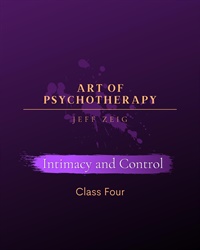
- Average Rating:
- Not yet rated
- Topic Areas:
- Utilization | Clinical Demonstrations | Psychotherapy | Therapist Development | Intimacy | Psychosomatics | Communication
- Bundle(s):
- Art of Psychotherapy - Utilization Series
- Categories:
- Art of Psychotherapy
- Faculty:
- Jeffrey Zeig, PhD
- Course Levels:
- Master Degree or Higher in Health-Related Field
- Duration:
- 2 Hours 22 Minutes
- Format:
- Audio and Video
- Original Program Date:
- Jul 12, 2020
- Short Description:
- For the final class in the Utilization series, Patricia joins us to discuss her preference for being in control, and how that relates to her struggles with intimacy. She also requests help alleviating a psychosomatic response from an earlier trauma. Dr. Zeig uses an interpersonal approach to this session, utilizing verbal and body language techniques to help communicate complex concepts. Zeig establishes the theme of appreciate as the through-line for this session.
- Price:
- $79.00 - Base Price
Credit available - Click Here for more information
- Average Rating:
- Not yet rated
- Topic Areas:
- Speeches | Relationships | Trauma | Continuing Education | Brief Therapy | Intimacy
- Categories:
- Brief Therapy Conference | Brief Therapy Conference 2018 | Online Continuing Education
- Faculty:
- Laura Brown, PhD
- Course Levels:
- Master Degree or Higher in Health-Related Field
- Duration:
- 1:03:11
- Format:
- Audio and Video
- Original Program Date:
- Dec 08, 2018
- Short Description:
- BT18 Speech 14 - Helping Trauma Survivors to Have the Relationships They Deserve - Laura Brown, PhD Survivors of complex childhood trauma --systemic abuse, neglect, and disrupted attachment schemata -- enter adulthood with internal working models of relationship that often lead them into difficult and painful connections with others. I will address the specific challenges in empowering these survivors to stop "paying the price of admission" to intimacy, and discuss how therapists can find effective strategies for addressing pre-verbal and early verbal core beliefs about self, being lovable, and being safe in relationships.
- Price:
-
Sale is $29.00
price reduced from Base Price - $59.00
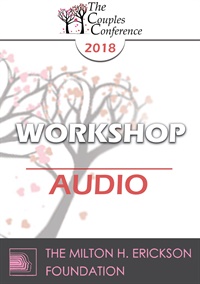
- Average Rating:
- Not yet rated
- Topic Areas:
- Sex and Sexuality | Workshops | Couples Therapy
- Categories:
- Couples Conference | Couples Conference 2018 | Pioneers in Couples and Family Therapy
- Faculty:
- Stan Tatkin, PsyD, MFT
- Duration:
- 1:59:07
- Format:
- Audio Only
- Original Program Date:
- May 04, 2018
- Short Description:
- This workshop explores sex as a core issue in couple therapy, emphasizing psychobiological and attachment-based frameworks. Tatkin presents bottom-up interviewing and assessment techniques that address implicit somatic responses, performance anxiety, and intimacy challenges. Clinicians learn to integrate neurobiology, arousal regulation, and attachment style into practical interventions for treating sexual dissatisfaction and dysfunction.
- Price:
- $15.00 - Base Price
Credit available - Click Here for more information
- Average Rating:
- Not yet rated
- Topic Areas:
- Speeches | Couples Therapy | Sex and Sexuality | Marriage | Relationships
- Categories:
- Evolution of Psychotherapy | Evolution of Psychotherapy 2017 | Online Continuing Education | Pioneers in Couples and Family Therapy
- Faculty:
- Michele Weiner-Davis, LCSW
- Course Levels:
- Master Degree or Higher in Health-Related Field
- Duration:
- 46:30
- Format:
- Audio and Video
- Original Program Date:
- Dec 16, 2017
- Short Description:
- Explore the emotional toll of mismatched sexual desire, a common yet often unspoken challenge in long-term relationships. Drawing from her book The Sex-Starved Marriage and over three decades of clinical experience, Weiner-Davis outlines a collaborative, solution-focused model to restore physical and emotional closeness. With warmth and clarity, she offers practical strategies to foster empathy, increase connection, and reignite desire.
- Price:
-
Sale is $29.00
price reduced from Base Price - $59.00
Credit available - Click Here for more information
- Average Rating:
- Not yet rated
- Topic Areas:
- Clinical Demonstrations | Couples Therapy | Intimacy | Sex and Sexuality | Relationships
- Bundle(s):
- Learning Track - Couples Starter Kit
- Categories:
- Evolution of Psychotherapy | Evolution of Psychotherapy 2017 | Online Continuing Education
- Faculty:
- Esther Perel, MA, LMFT
- Course Levels:
- Master Degree or Higher in Health-Related Field
- Duration:
- 52 Minutes
- Format:
- Audio and Video
- Original Program Date:
- Dec 16, 2017
- Short Description:
- Through podcasts and experiential exercises we will demonstrate clinical work around sexuality and intimacy with couples. Educational Objectives: Identify common blocks to eroticism including the fear of abandonment or entrapment, as well as how our emotional history shapes our erotic blueprint. Describe three strategies to help couples cultivate eroticism and bring a greater sense of aliveness to their relationship.
- Price:
-
Sale is $29.00
price reduced from Base Price - $59.00
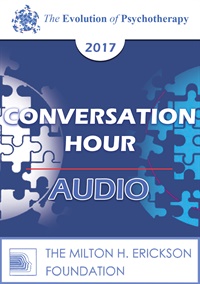
- Average Rating:
- Not yet rated
- Topic Areas:
- Conversation Hours | Couples Therapy | Conflict | Existential Therapy | Psychotherapy | Relationships | Intimacy
- Categories:
- Evolution of Psychotherapy | Evolution of Psychotherapy 2017
- Faculty:
- John Gottman, PhD | Julie Gottman, PhD
- Course Levels:
- Master Degree or Higher in Health-Related Field
- Duration:
- 1:03:04
- Format:
- Audio Only
- Original Program Date:
- Dec 15, 2017
- Short Description:
- EP17 Conversation Hour 05 - John Gottman, PhD and Julie Gottman, PhD Educational Objectives: Describe why not all relationship conflict is the same, and why some conflicts require the therapist to be an existential psychologist. Describe why it is so vital for therapists to measure physiology in couples’ therapy. Describe what Gottman sound relationship house theory and Gottman method couples therapy offers in the following domains: (1) friendship and intimacy, (2) conflict management, (3) shared meaning, (4) trust, and (5) commitment.
- Price:
- $15.00 - Base Price
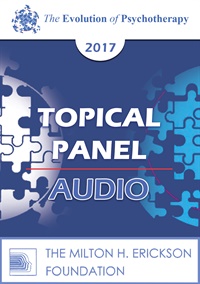
- Average Rating:
- Not yet rated
- Topic Areas:
- Topical Panels | Intimacy | Sex and Sexuality | Couples Therapy | Psychotherapy
- Categories:
- Evolution of Psychotherapy | Evolution of Psychotherapy 2017
- Faculty:
- Sue Johnson, EdD | Otto Kernberg, MD | Peter Levine, PhD
- Duration:
- 59:24
- Format:
- Audio Only
- Original Program Date:
- Dec 15, 2017
- Short Description:
- Sex can create intimacy and intimacy can facilitate sexual expression. The intersection between sex and intimacy will be discussed in described from three different perspectives.
- Price:
- $15.00 - Base Price
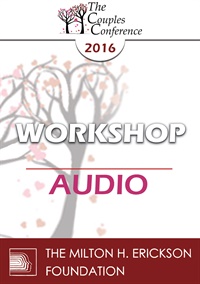
- Average Rating:
- Not yet rated
- Topic Areas:
- Attachment | Workshops | LGBTQ | Relationships | Differentiation | Communication | Intimacy | Sex and Sexuality
- Categories:
- Couples Conference | Couples Conference 2016
- Faculty:
- Rick Miller, MSW
- Duration:
- 01:44:31
- Format:
- Audio Only
- Original Program Date:
- May 15, 2016
- Short Description:
- Gay men face unique challenges regarding intimacy, communication and personal autonomy. Hiding due to being gay along with being raised male, creates a dynamic of distancing as the norm. The goal of psychotherapy is to accept and verbalize vulnerabilities in a context of safety, encourage revealing oneself for the sake of self-acceptance, and to learn how to receive nurturance from others. This workshop will define the art of how to gain connection while maintaining autonomy. There will also be an emphasis on sexuality and how specific attachment styles effects choices related to safety, security and risky sexual practices.
- Price:
- $15.00 - Base Price
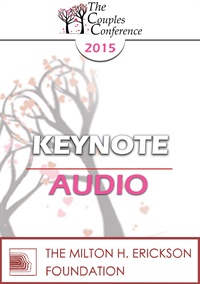
- Average Rating:
- Not yet rated
- Topic Areas:
- Couples Therapy | Attachment | Keynotes | Anxiety | Intimacy | Sex and Sexuality | Love
- Categories:
- Couples Conference | Couples Conference 2015
- Faculty:
- Esther Perel, MA, LMFT
- Duration:
- 57:21
- Format:
- Audio Only
- Original Program Date:
- Apr 25, 2015
- Short Description:
- This bold take on intimacy and sex grapples with the obstacles and anxieties that arise when our need for secure love conflicts with our pursuit of passion. We will tackle eroticism as a quality of vitality in relationships extending far beyond mere sexuality and show how reconciling these two competing needs is at the heart of sustaining desire over time. We will address paradoxes of desire and how social forces inhibit erotic expression; attachment history and the erotic blueprint.
- Price:
- $15.00 - Base Price
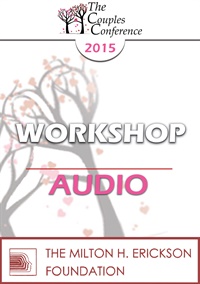
- Average Rating:
- Not yet rated
- Topic Areas:
- Couples Therapy | Infidelity | Sex and Sexuality | Workshops | Love | Intimacy
- Categories:
- Couples Conference | Couples Conference 2015
- Faculty:
- Esther Perel, MA, LMFT
- Duration:
- 1:40:17
- Format:
- Audio Only
- Original Program Date:
- Apr 25, 2015
- Short Description:
- Through case examples, Esther Perel will show how to effectively engage such issues as intimacy, sexuality and infidelity by creating separate spaces where each partner can explore his/her feelings and experiences along with larger relationship dynamics. We will show how to navigate privacy and secrecy, honesty and transparency, stage interventions around sexual impasses, and structure a safe and flexible therapeutic environment to work effectively with infidelity.
- Price:
- $15.00 - Base Price
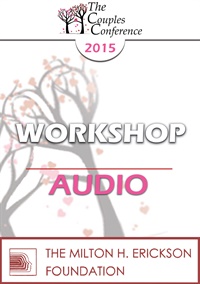
- Average Rating:
- Not yet rated
- Topic Areas:
- Couples Therapy | Workshops | Love | Communication | Intimacy | Relationships
- Categories:
- Couples Conference | Couples Conference 2015
- Faculty:
- Pat Love, EdD
- Duration:
- 1:34:46
- Format:
- Audio Only
- Original Program Date:
- Apr 25, 2015
- Short Description:
- While we love those deep, intimate conversations that bring us close together and join our spirits, what role does difference play in passion? Come explore this and other questions related to relational happiness. We will identify two empathic systems, and understand the role of dopamine in intimate relationships.
- Price:
- $15.00 - Base Price
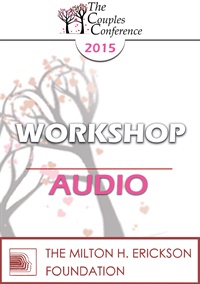
- Average Rating:
- Not yet rated
- Topic Areas:
- Couples Therapy | Workshops | Intimacy | Love | Sex and Sexuality
- Categories:
- Couples Conference | Couples Conference 2015
- Faculty:
- Esther Perel, MA, LMFT
- Duration:
- 1:27:43
- Format:
- Audio Only
- Original Program Date:
- Apr 25, 2015
- Short Description:
- Why does great sex so often fade for couples who claim to love each other as much as ever? Why doesn’t good intimacy guarantee good sex? When you love , how does it feel and when you Desire how is it different? Loss of Desire brings many people into our offices. It is the prime sexual complaint that leads relational unhappiness, infidelity and even divorce. For the most part, sexuality has been relegated to sex therapy and couple therapy has been a desexualized practice. Yet, love in our digital age puts sex at the center of couples’ lives.
- Price:
- $15.00 - Base Price
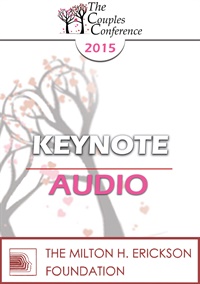
- Average Rating:
- Not yet rated
- Topic Areas:
- Couples Therapy | Sex and Sexuality | Keynotes | Intimacy | Relationships
- Categories:
- Couples Conference | Couples Conference 2015
- Faculty:
- Pat Love, EdD
- Duration:
- 53:58
- Format:
- Audio Only
- Original Program Date:
- Apr 24, 2015
- Short Description:
- Our natural sexual setpoint explains a lot about arousal, desire and intimate satisfaction. We will explore this issue with research, facts and humor, with the objectives of understanding the effects of estrogen on desire and the effects of testosterone on desire.
- Price:
- $15.00 - Base Price
- Average Rating:
- Not yet rated
- Topic Areas:
- Keynotes | Couples Therapy | Intimacy | Sex and Sexuality | Attachment | Love
- Categories:
- Brief Therapy Conference | Brief Therapy Conference 2014
- Faculty:
- Esther Perel, MA, LMFT
- Course Levels:
- Master Degree or Higher in Health-Related Field
- Duration:
- 59:13
- Format:
- Audio and Video
- Original Program Date:
- Dec 13, 2014
- Short Description:
- Based on Perel’s Mating in Captivity, this bold take on intimacy and sex grapples with the obstacles and anxieties that arise when our need for secure love conflicts with our pursuit of passion. We will tackle eroticism as a quality of vitality in relationships extending far beyond mere sexuality and show how reconciling these two competing needs is at the heart of sustaining desire over time.
- Price:
-
Sale is $29.00
price reduced from Base Price - $59.00

- Average Rating:
- Not yet rated
- Topic Areas:
- Sex and Sexuality | Workshops | Brief Therapy | Couples Therapy | Intimacy | Relationships
- Categories:
- Brief Therapy Conference | Brief Therapy Conference 2014
- Faculty:
- Pat Love, EdD
- Duration:
- 1:42:06
- Format:
- Audio Only
- Original Program Date:
- Dec 12, 2014
- Short Description:
- Human sexual response is a complex system even when attempting to understand one person let alone two people in a relationship. It is helpful, therefore to have a way to organize decades of research and clinical practice in a manner which can be shared with clients. A practical schema will be presented to educate and motivate clients interested in improving their intimate connection. Lecture, video, original handouts and experiential exercises will be utilized.
- Price:
- $15.00 - Base Price
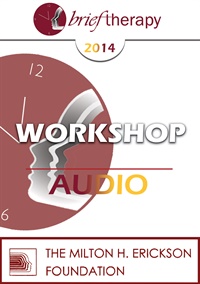
- Average Rating:
- Not yet rated
- Topic Areas:
- Workshops | Mindfulness | Intimacy | Couples Therapy | Relationships
- Categories:
- Brief Therapy Conference | Brief Therapy Conference 2014
- Faculty:
- Ronald Siegel, PsyD
- Duration:
- 1:54:20
- Format:
- Audio Only
- Original Program Date:
- Dec 12, 2014
- Short Description:
- Psychotherapists and clinical researchers are finding that ancient Eastern meditative techniques, originally solitary practices refined by hermits, monks, and nuns, are proving to be remarkably useful for facing interpersonal challenges. This workshop will explore how mindfulness meditation can help our clients and us develop the affect tolerance and capacity to be with and understand others that are critical for successful intimate relationships. You’ll leave knowing the three core elements of mindfulness practice, how to use mindfulness to react less personally to the inevitable ups and downs of interpersonal life, and how interpersonal mindfulness techniques can enhance therapeutic, romantic, and parent-child interaction.
- Price:
- $15.00 - Base Price
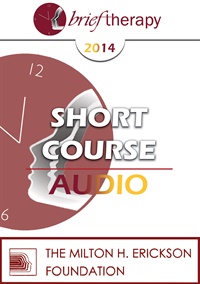
- Average Rating:
- Not yet rated
- Topic Areas:
- Short Courses | Brief Therapy | Couples Therapy | Intimacy | Relationships | Solution Oriented Approach
- Categories:
- Brief Therapy Conference | Brief Therapy Conference 2014
- Faculty:
- Robert Johansen, PhD
- Duration:
- 1:45:02
- Format:
- Audio Only
- Original Program Date:
- Dec 11, 2014
- Short Description:
- The presentation introduces a new, solution-focused model for treating individuals/couples. The model proposes specific and clear steps on how to differentiate types of love and how these impact intimacy. Participants will develop lasting strategies on how to effectively manage personal needs in the context of the intimate relationship.
- Price:
- $15.00 - Base Price
- Average Rating:
- Not yet rated
- Topic Areas:
- Couples Therapy | Infidelity | Workshops | Affairs | Psychotherapy
- Categories:
- Evolution of Psychotherapy | Evolution of Psychotherapy 2013 | Pioneers in Couples and Family Therapy
- Faculty:
- Michele Weiner-Davis, LCSW
- Course Levels:
- Master Degree or Higher in Health-Related Field
- Duration:
- 1:54:29
- Format:
- Audio and Video
- Original Program Date:
- Dec 14, 2013
- Short Description:
- This session offers a clear, compassionate path for helping couples recover from infidelity. Weiner-Davis shares tools for restoring trust, managing anger, addressing partial disclosures, and reestablishing connection. Her approach supports both partners with practical strategies and a strong belief in the possibility of healing—even when things feel irreparable.
- Price:
-
Sale is $29.00
price reduced from Base Price - $59.00
- Average Rating:
- Not yet rated
- Topic Areas:
- Workshops | Pain and Healing | Couples Therapy | Sex and Sexuality | Conflict | Infidelity | Intimacy
- Categories:
- Couples Conference | Couples Conference 2013
- Faculty:
- Marty Klein, PhD
- Course Levels:
- Master Degree or Higher in Health-Related Field
- Duration:
- 2:04:57
- Format:
- Audio and Video
- Original Program Date:
- Apr 21, 2013
- Short Description:
- Couples therapy typically pathologizes porn use while legitimizing the grievances of the user’s partner. While this approach may seem logical, it rarely increases sexual/relationship satisfaction. How do we hold both partners while they struggle to define their behavior, contract, and emotions? This talk examines a different approach to intrapsychic conflict and power struggles over porn use. We’ll explore underlying rela-tional issues, including: Is conflict about pornography a way to avoid confronting defi-cits in the sexual (or non-sexual) relationship? Are one or both partners acting out body image issues? Is porn use infidelity?
- Price:
-
Sale is $29.00
price reduced from Base Price - $59.00
- Average Rating:
- Not yet rated
- Topic Areas:
- Keynotes | Love | Couples Therapy | Polyvagal Theory | Intimacy | Neuroscience | Relationships
- Categories:
- Couples Conference | Couples Conference 2013
- Faculty:
- Stephen Porges, PhD
- Course Levels:
- Master Degree or Higher in Health-Related Field
- Duration:
- 56:26
- Format:
- Audio and Video
- Original Program Date:
- Apr 20, 2013
- Short Description:
- The Love Code provides a metaphor to explore the neural mechanisms underlying how and why we attach, bond, fall in love and seek out safe and trusted others in an unsafe world. This presentation will explore the body’s need for intimate engagement and social bonding from an adaptive perspective. Within the theoretical context of the Polyvagal Theory, the presentation will illustrate how specific features in our social environment may trigger neurophysiological systems, through a process of “neuroception,” that enables us either to be fearful and disengage or to feel safe and enter enduring intimate relations.
- Price:
-
Sale is $29.00
price reduced from Base Price - $59.00
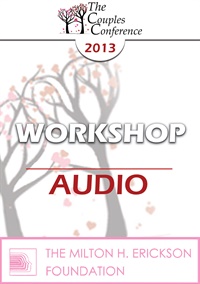
- Average Rating:
- Not yet rated
- Topic Areas:
- Workshops | Couples Therapy | Relationships | Aging and Mortality | Sex and Sexuality
- Categories:
- Couples Conference | Couples Conference 2013
- Faculty:
- Lonnie Barbach, PhD
- Duration:
- 1:31:09
- Format:
- Audio Only
- Original Program Date:
- Apr 20, 2013
- Short Description:
- This workshop shows how small shifts in language can change the emotional climate of couples therapy in real time. Through live demonstrations and detailed clinical examples, it teaches therapists how to listen for specific words and patterns that trigger defensiveness, shut down vulnerability, or create power struggles, and how to intervene moment by moment to restore safety. The approach offers concrete tools for helping couples speak more clearly about feelings, hear one another more accurately, and move more quickly toward intimacy and repair.
- Price:
- $15.00 - Base Price
- Average Rating:
- Not yet rated
- Topic Areas:
- Couples Therapy | Keynotes | Marriage | Therapist Development
- Categories:
- Couples Conference | Couples Conference 2013 | Pioneers in Couples and Family Therapy
- Faculty:
- Michele Weiner-Davis, LCSW
- Course Levels:
- Master Degree or Higher in Health-Related Field
- Duration:
- 57:32
- Format:
- Audio and Video
- Original Program Date:
- Apr 19, 2013
- Short Description:
- This keynote invites therapists to become champions of last-chance couples. Blending clinical insight with personal conviction, it explores how therapist mindset shapes outcomes, especially when hope feels lost. Drawing on ideas like the “walk-away wife” and the power of emotional effort, it encourages relational optimism, everyday advocacy, and staying attuned to what helps partners reconnect.
- Price:
-
Sale is $29.00
price reduced from Base Price - $59.00
- Average Rating:
- Not yet rated
- Topic Areas:
- Couples Therapy | Sex and Sexuality | Workshops | Intimacy
- Categories:
- Couples Conference | Couples Conference 2013
- Faculty:
- Marty Klein, PhD
- Course Levels:
- Master Degree or Higher in Health-Related Field
- Duration:
- 1:51:11
- Format:
- Audio and Video
- Original Program Date:
- Apr 19, 2013
- Short Description:
- What do most couples really want from sex? It isn’t endless orgasms, or sex around the clock. Most people want the same old things: connection, pleasure, excitement, mystery, validation. And magic. When the prospect of getting these is slim, satisfaction declines, and desire falls. This is not a “dysfunction;” improving genital “function” is not the answer. The key, instead, often lies in addressing power struggles and control issues; the existential challenges of adulthood; and the need for a new vocabulary. We will discuss how to move couples from perfunctory, infrequent sex to a more vibrant and intriguing experience. We’ll also look at what therapists need internally to help couples discuss sex.
- Price:
-
Sale is $29.00
price reduced from Base Price - $59.00


